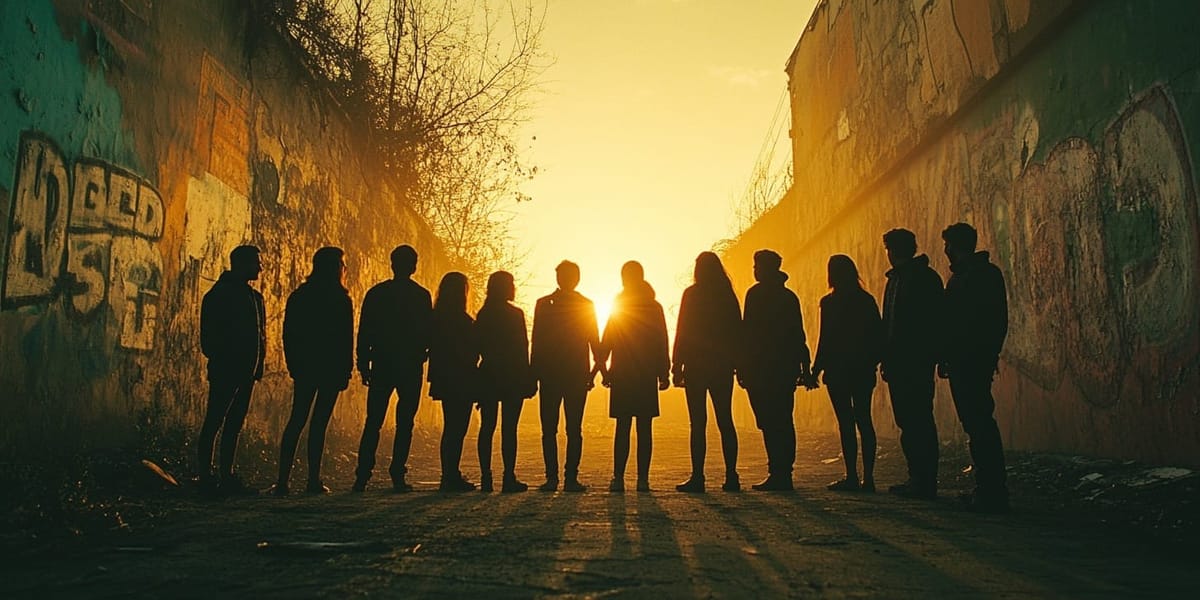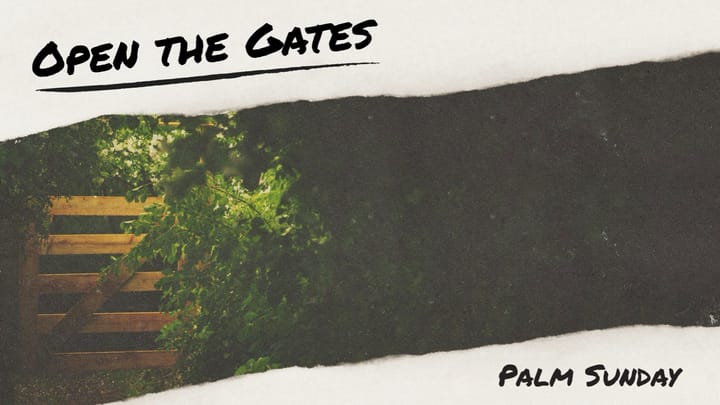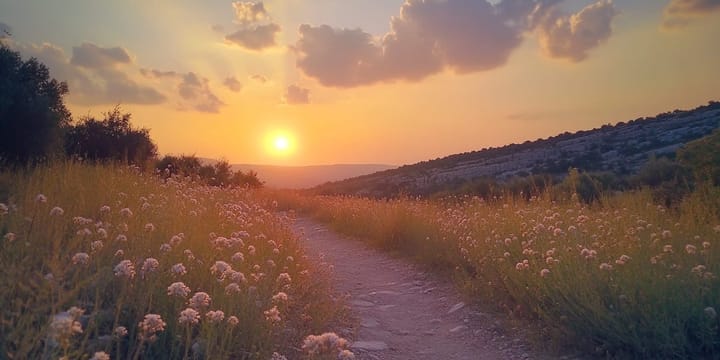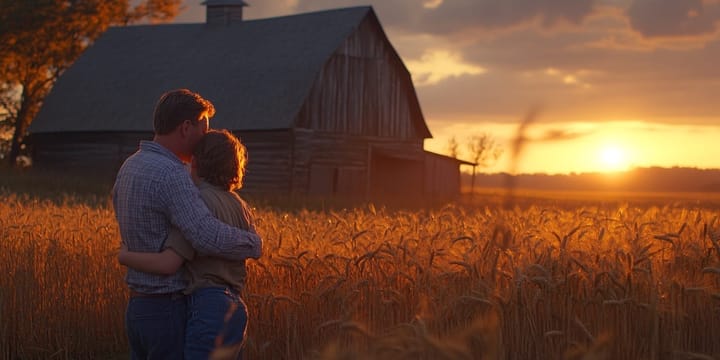Fairhaven Sermon 1-26-2025

Summary
In this week’s service at Fairhaven United Methodist Church, Rev. Peg Bowman began by recognizing International Holocaust Remembrance Day and the 80th anniversary of Auschwitz’s liberation, reflecting on the profound impact of Jewish history on Christianity. She led a solemn prayer against anti-Semitism and prejudice, emphasizing the need to stand against hatred. The sermon then turned to Nehemiah, recounting Israel’s return from Babylonian exile and the Festival of Booths, where the Law was read aloud to all, including women and children—a rare event given literacy’s scarcity. This passage highlighted the historical significance of communal worship and reflection on God’s word.
Rev. Bowman connected this to modern times, noting literacy’s historical rarity and its ongoing challenges, urging the congregation to support literacy initiatives. She emphasized that belief must lead to action, citing Nehemiah’s message of joy and sharing blessings with others. The sermon concluded by stressing that true belief compels us to act justly and love mercy, urging a life lived in accordance with God’s teachings.
Transcript
Well, before I begin the sermon today, I wanted to remember with you that tomorrow, January 27th, is International Holocaust Remembrance Day and also the 80th anniversary of the liberation of Auschwitz. And the scripture we're going to be looking at in just a moment comes to us from Jewish history. And without that Jewish history, we would have no Messiah and we would have no Christianity. Our faith rests on their foundation.
And the genocide that my parents' generation witnessed must never happen again. This week, we remember the murder of 9 million people, actually 6 million Jewish people and 3 million others, including gypsies and Christians. And I want to take a moment and remember this before God, so please pray with me. God of mercy, we remember today the Jewish victims of the Holocaust and all who suffered hate and violence.
Help us never to forget and give us the courage to stand against anti-Semitism and prejudice in all its forms. Help us to confront bigotry with love and justice. In the name of Jesus Messiah, the light of the world, amen. So turning now to our reading from Nehemiah, because that wonderful reading from the gospel, we're going to be doing that next week because we get the second half, that's only the first half of the story, so the second half will be read next week and we'll do the whole thing.
So looking at Nehemiah today, at this point in the history of Israel, the people of God were slowly recovering from their exile in Babylon. So that's kind of where we are with the nation at this point. The exile, remember, had happened because the people and the leaders of Israel had disobeyed God. They had been worshiping other powers that were not God's.
And now as the people of Israel are beginning to resettle in their land, their full freedom has not yet been completely restored. Their kings are not as powerful as they used to be and how Israel was being led had changed. And one other thing to remember as we come to this passage is that all of the events that we heard here take place during the festival of booths, which is still celebrated amongst our Jewish brothers and sisters, God had commanded Israel hundreds of years before that when they entered the promised land, God said to Moses and then through Moses to the people, at the end of every seven years at the festival of booths, you shall read the law before all Israel, assemble the people, men, women, and little ones, and the sojourner within your towns that they may hear and learn to fear the Lord your God. So as we begin this reading, God's commandment has been remembered by the priests and they have called the people together to obey God and to observe the festival of booths for the first time in over a hundred years.
So shifting gears just a little bit, I'd like to start out by asking, how old were you when you learned to read? And who taught you to read? Who was it that read to you? What were your favorite stories when you were first learning to read? I don't know about you, but I can barely remember not being able to read. My parents read to me, I think particularly my mother, probably from the minute I was born. Mom was always getting me those little golden books, do you remember those things? Reading to me from those, especially the ones about Jesus. I grew up surrounded by books and Dad, he had so many books.
One entire wall of our rec room was bookshelves and they were packed. And we had other bookshelves in other parts of the house too. It was just everywhere. And I have to admit, I take after Dad that way.
Just this past summer, I had wall-to-wall bookshelves put in my office and they are packed already. Anyway, so books, we kind of grew up with this, right? My guess is that most of us here today probably learned how to read by the age of five, by the time we got to first grade, if not before. And we've been reading ever since. We don't even think about it.
Many of us just grew up reading stories in Sunday school. I was thinking about our scripture from Nehemiah and it suddenly occurred to me that apart from the priests and the story, most likely very few, if any of those people who were there knew how to read. Even though reading and writing had been around already for thousands of years, until fairly recently the vast majority of people could not read or write. Teaching children to read has only become a thing for like maybe the past two or three hundred years.
Before the invention of the printing press, which is the mid-1400s, and for some time after that as well, usually only priests and royalty and lawyers knew how to read. And that's why churches had stained glass windows to teach the common people about the Word of God because they couldn't read. So they would put the stories in the glass to teach you the stories, right? So that's where I thought it all came about. So from before ancient Roman times up until about the 1700s, most books that existed were meant to be read out loud.
This might happen in public, in concert halls for example, or if the head of the household happened to know how to read, it might be family entertainment after dinner. This is in the days before TV, obviously. But with rare exceptions, reading was not something a person did by themselves. And it was not something that people did silently.
So as we hear this story in Nehemiah, an important part of the story is how rare and how special this occasion was. Because most of the people there could not read, and most of them had never heard the Word of God read out loud. During the people's time in Babylon, during their captivity, the priests had kept the scrolls of Moses safe. A few copies went with them into captivity where the priests continued to study them and teach.
But most of the scrolls were placed for safekeeping in empty clay jars and hidden in caves. A side note, some of those scrolls have only recently been found, and they are known as the Dead Sea Scrolls. So with rare exceptions, the people of Israel were not taught to read, and the scrolls were something of a mystery to them. They were looked upon as holy objects, and they were cared for very gently.
So as our scripture passage begins, the people of Israel who are finally back home, most of them to a home that they'd never seen before because if they're under 70 years old, they hadn't lived there before. These people gather into a large open square that's close to the temple. Now why they don't gather in the temple, basically because this is the Feast of Booths, which they're about to celebrate, and it takes place outdoors so that all the people can attend. Inside the temple building, men and women and children were separate from each other.
They could not worship together in those days. But not on this day. On this day, as it says in the Law of Moses, all the people were to hear God's Word equally together, and that included children and that included foreigners. The phrase all the people is repeated eight times in that passage, showing how important it was to God for everyone to hear these words.
So they asked Ezra the scribe to bring the Law of Moses, which starts with the Ten Commandments, and they started from there. Imagine what it would have been like to be in that crowd that day. For people who couldn't read and who rarely if ever had been read to, to hear the words of God for the very first time. I mean, today we read scriptures every day.
We can, or we can't if we choose to. Never occurs to us, really, that that might be a privilege. But there are people around the world even today who either can't read or who don't have Bibles in their own languages. We have been blessed, and we should keep eyes open for ways to bless others.
But back to the story. When Ezra started to read, all the people stood up out of respect for God's Word. And Ezra read for a long time. I hope he let them sit down after a while, because he was at it for hours.
But Ezra blessed God, and all the people shouted Amen, and then they bowed down, kneeling with their faces to the ground, worshiping God. And for the people of Israel, it had been so long since they'd heard these words. For many, it was the first time they were ever hearing these words. It was a new beginning, a new day, a new start, and the people were hungry to hear God's Word.
So Ezra kept reading for some time, and there were other scribes and teachers with him that what Kathy just read a few moments ago, there were a couple of verses missing in there. Those verses contained the names of all the other priests who were reading. There's quite a few of them. There was 13 priests and 13 scribes who were named in that passage who also helped to do the reading.
And the people couldn't get enough. They listened for hours. And when the readings and the teachings were done, the people started to weep, partly because they hadn't heard any of this in so long, and partly because God's Word made them realize that they hadn't been living the way God wanted them to live. It made them realize just how much had been lost during the captivity, and how much had been forgotten, and the very many ways that the people had not obeyed God's laws.
But Ezra said to them, This day is holy. Do not mourn or weep. This day is holy to God, he said. So no matter when or where, when people return to God, God rejoices.
God loves each of us so much that the minute we turn to God, God welcomes us. Remember the story of the prodigal son. As soon as the father saw him at a distance, he ran to that son who had squandered so much. God was so delighted to see him, God ran.
Ezra says to the people, Go and eat the fat and drink the wine. And he's not talking about the cheap stuff. Sweet foods and sweet wines, because it's time to celebrate, and God says, Crack out the good stuff. And one other thing God says, Send some of that food and some of that drink to people who don't have any, because this day is holy to God, and on a holiday, a holy day, God's people are always to remember those who don't have anything and share with them.
So likewise today, and for the same reasons, we are called to share what we have with others. We already do this in many ways through the food pantry, through the blessing bags, through the Living Stones meals. And if you haven't taken part in those ministries yet, I encourage you to do so. And another way we might share as we are able, if we are able, if we have the time, is by teaching people how to read, because there are still a few folks in our society today who cannot read or have struggled with reading.
And in a culture like ours where everyone is expected to read, not being able to read is a real handicap. It can cause hunger and it can cause homelessness. So illiteracy can happen because of like maybe childhood illness or a learning disability or a disrupted family life or because English wasn't spoken in the home. But I can tell you there are people within walking distance of this church who struggle with English.
So if you happen to have the time and the skills, by all means, get in touch with Literacy Pittsburgh and help out. But the bottom line lesson for today is the same as the lesson taught to the people of Israel. If we receive and believe and trust God's word, then we need to live it. And when we live it, we live into joy.
Back in Nehemiah's day, people understood deeply that if we don't act on what we know, then we don't really know it. If we don't act on what we believe, then we don't really believe it. There is no concept in scripture for believing something but then saying, Oh, but that's just what I think. I don't need to do anything about it.
If we don't act on what we believe, we don't really believe it. When people hear God's word and really spend time with it like the Israelites did that day, people respond. We bless God, we join our voices in prayer and in song to God, we are one with God's family and one with God, and we are then in a place where we can bring to God our deepest needs and our greatest fears and receive God's blessing and God's strength. And so as the prophet says, Do not weep.
This day, when you have heard God's word, is a holy day. This day is a day of healing and celebration and joy, and the joy of the Lord is our strength. So eat the sweetest of foods and drink the sweetest of drinks and share with anyone who has nothing, because God's gifts are more than enough for all of us. Amen.


